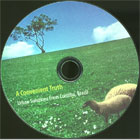
A Convenient Truth: Urban Solutions from Curitiba, Brazil 2007
Distributed by Green Planet Films, 21 Columbus Ave. Suite 205, San Francisco, CA 94111; 415-377-5471
Produced by Maria Vaz Photography and Del Bello Pictures
Directed by Giovanni Vaz Del Bello
DVD , color, 52 min.
Jr. High - Adult
Urban Studies, Transportation, Latin American Studies, Environmental Studies
Date Entered: 05/10/2010
Reviewed by Justin Cronise, University at Buffalo, State University of New YorkA Convenient Truth is a fascinating and informative film about how Curibita, Brazil, transformed itself from an urban hell to one of the most “livable” and sustainable cities in the world. Despite limited funding, Curibita’s leaders and innovators decisively implemented highly-creative and far-reaching solutions to a number of urban problems with a keen awareness of social issues and the environment. A Convenient Truth presents urban solutions, which often include collaborative projects in public-private partnerships, in four parts: transportation, recycling, housing, and parks.
Like most major cities, Curibita was becoming increasingly congested with automobiles. However, Curibita took steps to switch the priority from cars to people, starting by turning the busiest street in downtown Curibita into a pedestrian-only area. Then, to promote linear development and effectively reduce the distance between home, services, and work, they installed a “trinary” road system with dedicated bus lanes and one-way express routes (having 2-way traffic lights as opposed to 4-way).
The recycling project won an award for environmentalism from the United Nations in 1990, and seems to be just as much a social program as an environmental program. Employees worked fewer hours, which provided greater numbers of jobs to poor, un-educated, individuals, and included educational and developmental opportunities. For example, they creatively turned “trash that is not trash” into a museum of found art and art made from items pulled from the garbage, and consolidated tossed computer parts to make a computer skills learning lab.
The housing initiative brought infrastructure of roads, schools, and work opportunities to the developmental housing projects that years before were built far from downtown. An interesting aspect of this initiative is that the first floors of the housing buildings were allowed to become businesses and storefronts, to promote small businesses and services. The educational component also extended beyond schools for children to include programs for adults to gain professional and vocational skills.
Parks were created in natural wetlands and low areas where slums built up and were flooded every year. There was no funding for trimming the lawns, so they installed flocks of sheep to graze and keep the grasses low. The property values shot up in the surrounding areas that now bordered the parks and the city apparently gained on the investment to return these areas to nature.
A Convenient Truth is generally visually and conceptually impressive, however the narration is notably poor – all at once shouting, monotonous, bored-sounding, and thickly accented. It almost makes it hard to take this film seriously, and may compromise the educational usefulness. Also, the film depicts a reality in Curitiba that seems almost too good to be true. For example, there is no mention of difficulties encountered other than lack of funding, and it is unclear how the reforms were achieved politically.
While the urban solutions used in Curitiba may not be replicable in other cities, and there is little clarity in the actual process, this film definitely holds informational value. If nothing else, A Convenient Truth offers inspiration for innovations in other cities worldwide that put people first, and that improve the quality of life for the majority rather than just the most wealthy individuals. Despite some reservations, this film is recommended for urban public libraries, especially, as well as college libraries supporting undergraduate programs in urban design and city planning, especially relating to transportation, environmentalism, and social issues.
Awards
- 2007 Bronze Remi Award, WorldFest-Houston Film Festival